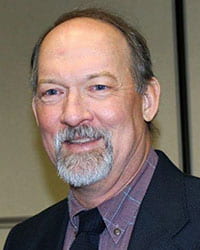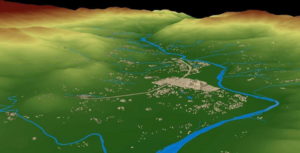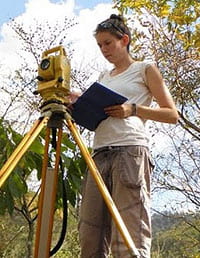Sunday, November 10, 2019 , 3:00pm
Michael M. Gregory, PhD, SNA International
Title: Missing in Action, Body Not Recovered: DPAA Archaeological Activities in Southeast Asia
Abstract:
The Defense POW/MIA Accounting Agency (DPAA) is tasked with providing “the fullest possible accounting” to the families and the nation about the more than 82,000 Americans who remain missing or “Unknown” from WWII through the Gulf Wars. Of this figure, approximately 1,588 are the result of the Vietnam War. While this is a small fraction of the total cases, they never-the-less receive substantial attention from the DPAA staff, who must research, investigate, and excavate “incident” sites; and when successful, identify recovered remains. For the forensic archaeologists directing the field studies, the work is challenging, exciting, frustrating, and satisfying, as they will encounter conditions—scale, work pace, topographic setting, expectations, and goals—rarely experienced at traditional archaeological sites and certainly never discussed in grad school. Often the skills of the archaeologist, as well as the rest of a recovery team, is what bridges the gap between historical research, and the recovery and identification of a missing service member, whether the individual is from the Vietnam War or another conflict falling under the purview of DPAA.
 Michael M. Gregory is an archaeologist with SNA International and a Board Member of the non-profit Camp Douglas Restoration Foundation, Inc. He holds degrees from Arizona State University (PhD and MA) and Washington and Lee University (BS). Being a historical archaeologist by choice, his primary research interests are the early suburbanization of Chicago, economic practices of 19th-century rural America, and Civil War prisoner-of-war camps. As a member of SNA International, he directs forensic recovery and investigative excavations for the Defense POW/MIA Accounting Agency (DPAA) in Southeast Asia. Prior to this position, he taught at DePaul University and directed Cultural Resources Management studies in the American Midwest, Southwest, and Mid-Atlantic regions. Over his varied career, the DPAA missions have proved to be the most challenging, engaging, and fulfilling/discouraging work he has undertaken.
Michael M. Gregory is an archaeologist with SNA International and a Board Member of the non-profit Camp Douglas Restoration Foundation, Inc. He holds degrees from Arizona State University (PhD and MA) and Washington and Lee University (BS). Being a historical archaeologist by choice, his primary research interests are the early suburbanization of Chicago, economic practices of 19th-century rural America, and Civil War prisoner-of-war camps. As a member of SNA International, he directs forensic recovery and investigative excavations for the Defense POW/MIA Accounting Agency (DPAA) in Southeast Asia. Prior to this position, he taught at DePaul University and directed Cultural Resources Management studies in the American Midwest, Southwest, and Mid-Atlantic regions. Over his varied career, the DPAA missions have proved to be the most challenging, engaging, and fulfilling/discouraging work he has undertaken.


 Michael M. Gregory is an archaeologist with SNA International and a Board Member of the non-profit Camp Douglas Restoration Foundation, Inc. He holds degrees from Arizona State University (PhD and MA) and Washington and Lee University (BS). Being a historical archaeologist by choice, his primary research interests are the early suburbanization of Chicago, economic practices of 19th-century rural America, and Civil War prisoner-of-war camps. As a member of SNA International, he directs forensic recovery and investigative excavations for the Defense POW/MIA Accounting Agency (DPAA) in Southeast Asia. Prior to this position, he taught at DePaul University and directed Cultural Resources Management studies in the American Midwest, Southwest, and Mid-Atlantic regions. Over his varied career, the DPAA missions have proved to be the most challenging, engaging, and fulfilling/discouraging work he has undertaken.
Michael M. Gregory is an archaeologist with SNA International and a Board Member of the non-profit Camp Douglas Restoration Foundation, Inc. He holds degrees from Arizona State University (PhD and MA) and Washington and Lee University (BS). Being a historical archaeologist by choice, his primary research interests are the early suburbanization of Chicago, economic practices of 19th-century rural America, and Civil War prisoner-of-war camps. As a member of SNA International, he directs forensic recovery and investigative excavations for the Defense POW/MIA Accounting Agency (DPAA) in Southeast Asia. Prior to this position, he taught at DePaul University and directed Cultural Resources Management studies in the American Midwest, Southwest, and Mid-Atlantic regions. Over his varied career, the DPAA missions have proved to be the most challenging, engaging, and fulfilling/discouraging work he has undertaken.